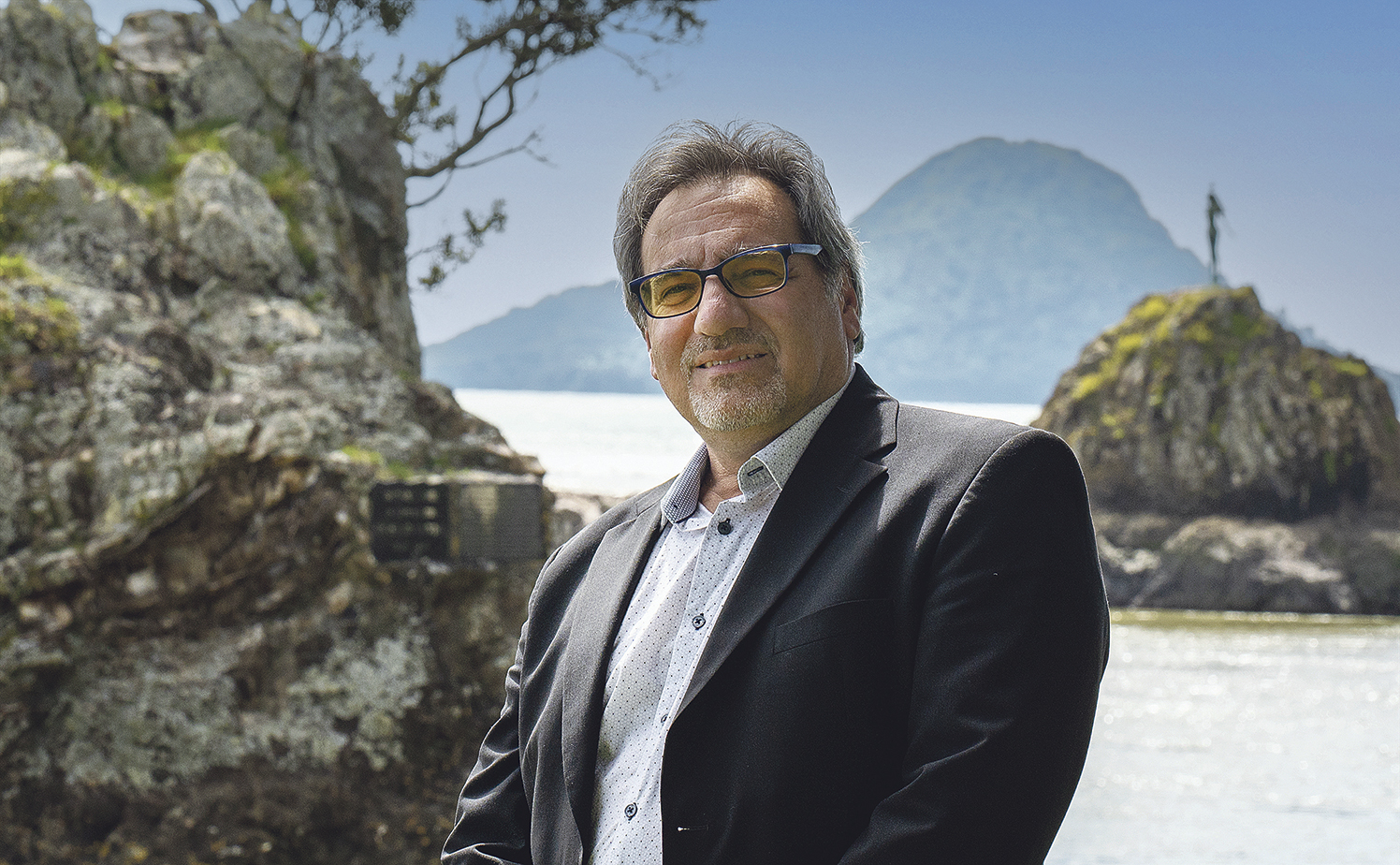Infrastructure guy’s not making any promises

Diane McCarthy
Whakatāne Mayor Victor Luca says he is not making any election promises.
“I don’t do promises, I make commitments. I commit to try to do things,” he told the Beacon.
As he seeks re-election, he feels he has achieved much of what he committed to when he was first elected to the mayoral role.
“I committed to keep downward pressure on rates and I think I’ve done it. They would have been higher if it wasn’t for my advocacy.
His commitment to this has led him to vote in opposition to the Annual Plan 2020, the Long-term Plan 2021-2031, the Annual plan 2023 and the Long-term Plan 2024-2034.
“Trying to make some money ourselves was a major thing. In fact, there has been a project running in council to make better use of some of our assets, mainly property assets. It’s well on track, and in the next term, undoubtedly, you’ll see some action in that space.”
Another matter he advocated for was making better use of free energy from the sun by generating electricity, creating income.
“We have now got panels going on the Civic Centre roof and several other buildings. A lot of people talked about it in the past, but it’s happened under my watch.”
His advocacy for a second bridge for Whakatāne for the past few years went as far as writing up the proposal himself.
“I bet you won’t find another mayor in New Zealand who will write his own proposal.”
Through his advocacy on the Regional Transport Committee, a business plan for the bridge was to have received central government funding, but changes to the Government Policy Statement for Land Transport meant funds dried up.
With central government issuing warnings to councils to prioritise core infrastructue and services, Dr Luca said he was well ahead of the game.
“I’m the infrastructure guy. It’s always been, for me, about water, roading, garbage collection and parks and reserves. If you have leftover money, you can worry about the amenities, but you have to have those things right first.”
That is the reason he has opposed such projects as the $100 million-plus Rex Morpeth Recreation Hub project.
“Even if we do get half the funding, we’ll still have to come up with $60 million.”
Of far greater concern to him is the town’s failing water infrastructure.
“Whakatāne has got huge problems in water. Confronted with shortfalls in critical infrastructure, I’m not prepared to back an amenity project. I think our amenities are excellent. I think Rex Morpeth Park is an excellent facility and the War Memorial Hall just needs some TLC.”
He counts as one of his wins the Mayor’s Taskforce for Water “a group of independent experts with profound knowledge” of matters relating to water.
“I find myself very lucky that in such a small place I managed to find half a dozen people with outstanding qualifications, three with PhDs in chemical engineering, and they’re prepared to give their time for nothing.
“I thought it was actually quite brilliant. It was set up to save us money and to look for creative ways and out-of-the-box thinking to problem solve. There’s always many ways to skin a cat and they don’t all cost the same. They’re there to conduct some oversight, to provide technical advice to council.”
Despite this, a recent report to council by Dr Luca about the taskforce’s findings on the Matatā Wastewater Project was unable to find a seconder to be received.
“That was just intended to be a slap in the face. People don’t want to hear the truth. One person on my council has accused me of setting it up to sabotage a project. I think that that’s very low-ball play, because Whakatāne’s water problems aren’t just Matatā sewage.”
He said whether the taskforce continued would be up to the next council to decide.
“Maybe common sense will prevail at some point. I’ve got people that if you had to pay them as consultants it would cost a fortune. And they’re free.”
He reminds people he was against the failed boat harbour project from the outset.
“I’m the only one who called it right from the outset. That should tell you something. When it comes to science, I’m not often wrong.”
He rejects suggestions he doesn’t collaborate well with others around the council table.
“I have led a council that has done everything it’s supposed to do. It’s operated effectively. The decisions have been made. Everybody has had a voice. Everybody has had their vote.”
He said he also had good relationships with his fellow Eastern Bay mayors, which was becoming ever more important as councils were expected to work more collaboratively.
He still has a bucket list he would like to achieve next term.
He would like to implement a new form of consultation, through the use of a cellphone app, which he feels would be quicker, easier and more representative than traditional consultation.
He also wants to address affordability of council and climate change education and increase the council’s solar energy production.
